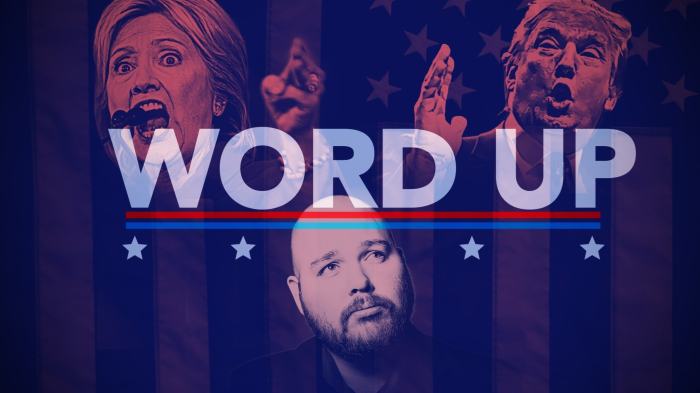Horse race journalism ap gov takes center stage in this thought-provoking exploration, where we’ll delve into its impact on elections, the role of the media, the influence of social media, and envision the future of election coverage.
From shaping voter perceptions to potentially influencing outcomes, horse race journalism has left an undeniable mark on the political landscape. As we navigate the ever-evolving media landscape, it’s crucial to examine the implications and limitations of this approach.
Horse Race Journalism and its Impact on Elections
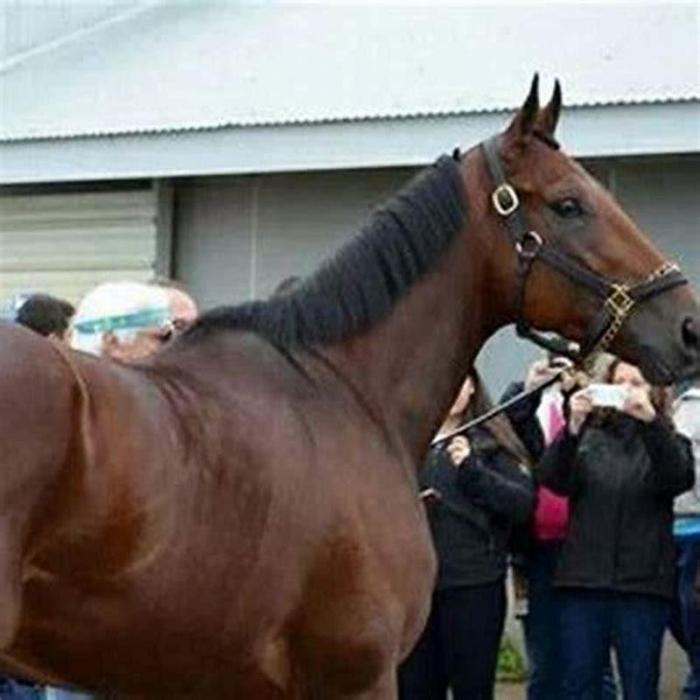
Horse race journalism is a style of political reporting that focuses on the electoral contest between candidates, rather than on the issues or policies at stake. It often emphasizes the horse race aspect of the campaign, reporting on polls, endorsements, and campaign strategies.Horse
race journalism can have a significant impact on voter perception. By focusing on the race itself, it can create a sense of excitement and suspense, and make voters more likely to tune in to the election. It can also influence voters’ perceptions of the candidates, by highlighting their strengths and weaknesses and making them seem more or less electable.For
example, in the 2016 US presidential election, horse race journalism played a major role in shaping the outcome. The media’s focus on the race between Hillary Clinton and Donald Trump, and their constant speculation about who was ahead in the polls, created a sense of inevitability about Trump’s victory.
This may have discouraged some Clinton supporters from voting, and helped to secure Trump’s victory.Horse race journalism has a number of potential biases and limitations. It can lead to a focus on style over substance, and it can make it difficult for voters to understand the real issues at stake in the election.
Additionally, it can be biased towards candidates who are well-known or well-funded, and it can make it difficult for challengers to gain traction.Despite its limitations, horse race journalism remains a popular and influential form of political reporting. It can provide voters with valuable information about the candidates and the race, and it can help to generate interest in the election.
However, it is important to be aware of the potential biases and limitations of horse race journalism, and to consume it with a critical eye.
In horse race journalism ap gov, pundits often try to predict the winner based on polls and other factors. This can be a challenging task, as there are many variables that can affect the outcome of an election. For example, in the 2016 US presidential election, many polls predicted that Hillary Clinton would win, but Donald Trump ultimately won the election.
This shows that it is difficult to accurately predict the outcome of an election, and that there are many factors that can affect the results. Just like in the phantom tollbooth act 1 , where Milo was surprised by the different ways to look at things, horse race journalism ap gov can be full of surprises too.
The Role of the Media in Horse Race Journalism
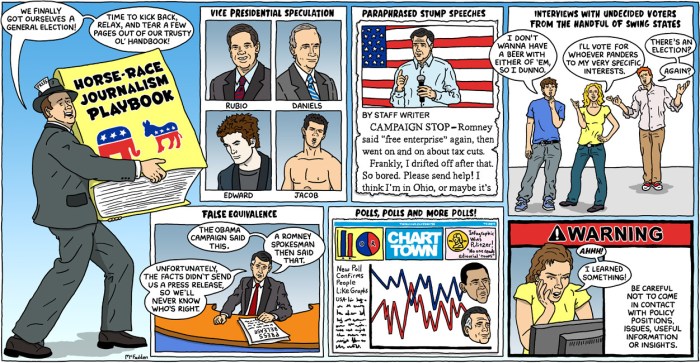
The media plays a pivotal role in perpetuating horse race journalism by prioritizing coverage of campaign dynamics and electoral outcomes over policy substance. By focusing on the strategies, polls, and personalities involved in elections, the media reduces complex political issues to a simplified narrative of who is “winning” or “losing.”
Ethical Implications
Horse race journalism raises ethical concerns as it:
- Distorts public understanding of elections by oversimplifying complex issues.
- Encourages candidates to focus on superficial tactics rather than substantive policies.
- Can create a false sense of urgency and competition, leading to voter apathy.
The Impact of Social Media on Horse Race Journalism
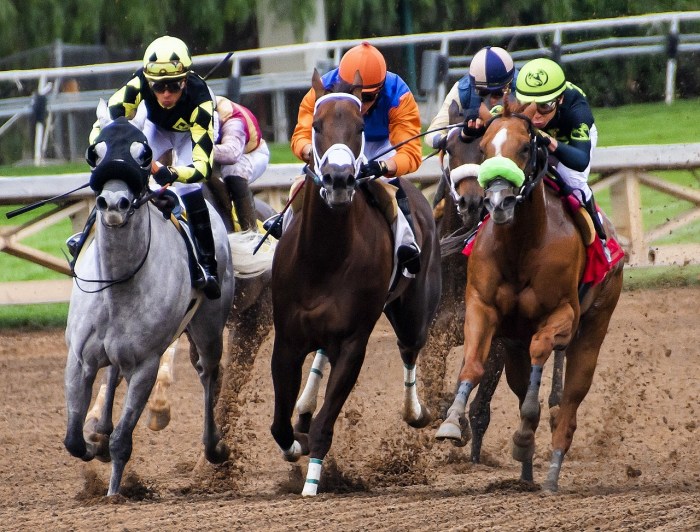
The advent of social media has dramatically amplified and transformed horse race journalism. Social media platforms have become a primary source of information for voters, allowing them to follow candidates, engage in political discussions, and share their opinions.
Social media has also played a significant role in shaping public opinion and influencing election outcomes. Candidates can now bypass traditional media outlets and communicate directly with voters, allowing them to control their message and avoid potential misrepresentations by the press.
Social Media’s Potential to Mitigate or Exacerbate Horse Race Journalism, Horse race journalism ap gov
Social media has the potential to both mitigate and exacerbate the effects of horse race journalism. On the one hand, social media can provide voters with more information and diverse perspectives, allowing them to make more informed decisions.
On the other hand, social media can also amplify misinformation and partisan bias, potentially leading to voters making decisions based on inaccurate or incomplete information.
The Future of Horse Race Journalism: Horse Race Journalism Ap Gov
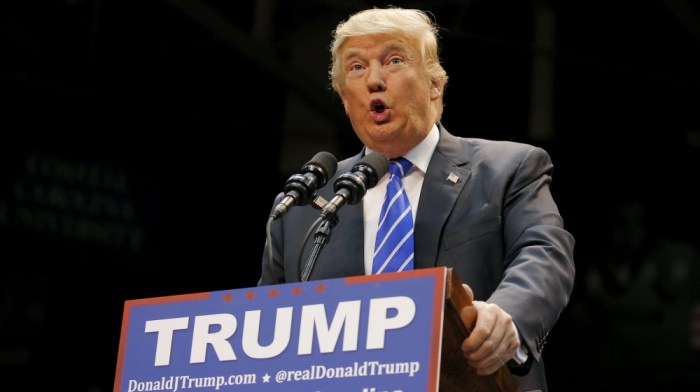
The digital age has transformed the media landscape, and horse race journalism is no exception. In the future, we can expect to see continued evolution in the way that elections are covered, with a greater emphasis on substance over sensationalism and a focus on promoting informed and engaged voter participation.
Alternative Approaches to Election Coverage
One potential approach to election coverage that prioritizes substance over sensationalism is to focus on the issues rather than the candidates. This would involve reporting on the candidates’ policy positions and their plans for addressing the challenges facing the country, rather than focusing on their personal lives or campaign strategies.Another
approach is to provide more context for the news that is reported. This would involve explaining the history of the issues being discussed and providing information about the different perspectives on those issues. This would help voters to understand the complexities of the issues and to make more informed decisions about who to vote for.
Helpful Answers
What is horse race journalism?
Horse race journalism focuses on the competitive aspects of elections, emphasizing candidates’ standings in polls and their chances of winning.
How does horse race journalism influence elections?
By highlighting certain candidates and storylines, horse race journalism can shape public perception and potentially influence voter behavior.
What are the ethical implications of horse race journalism?
Horse race journalism may oversimplify complex issues and neglect important policy discussions, potentially undermining informed voter decision-making.
How has social media impacted horse race journalism?
Social media has amplified and transformed horse race journalism, providing new platforms for spreading information and shaping public opinion.
